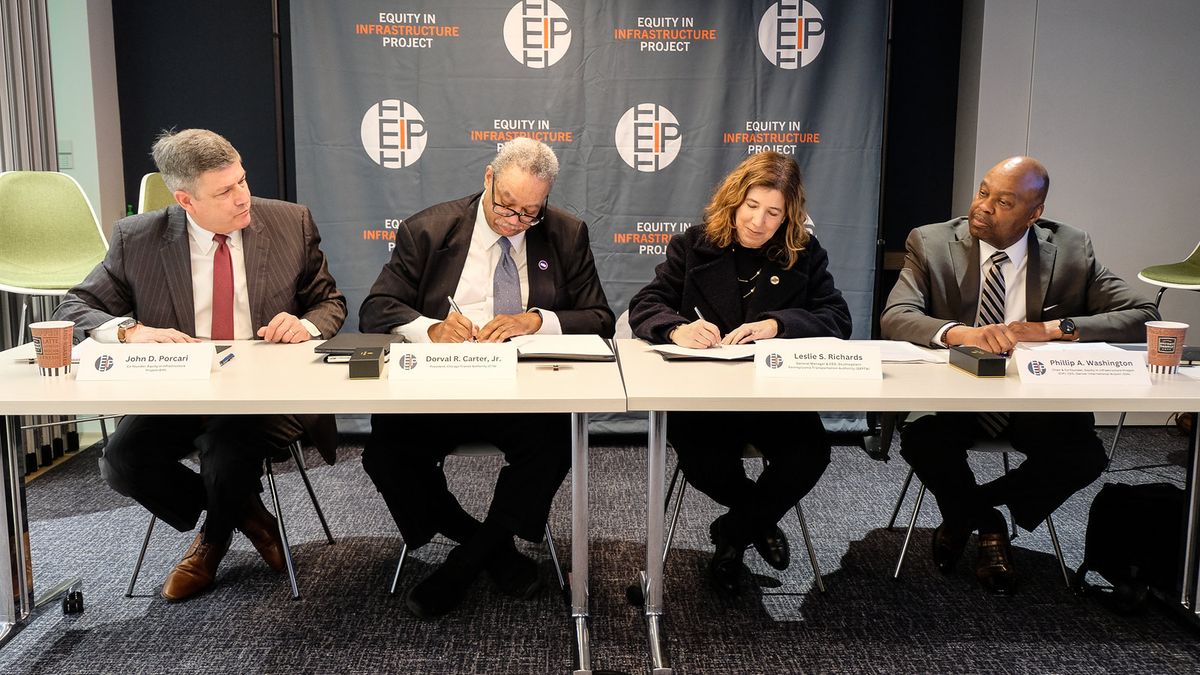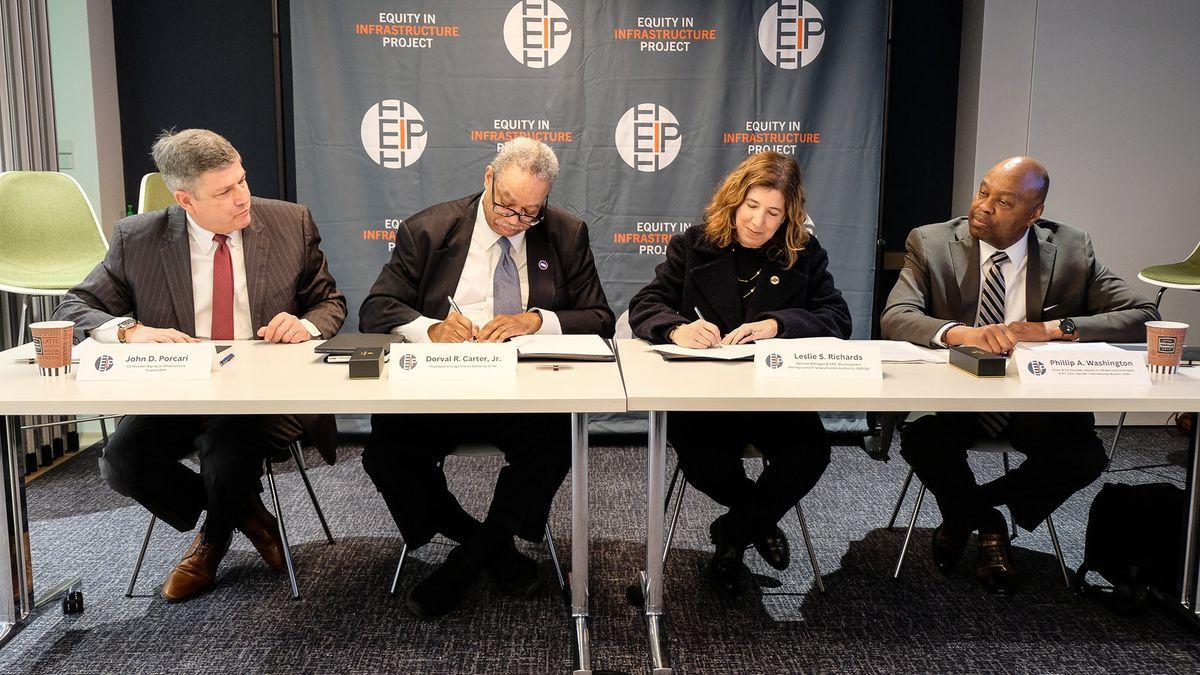The leaders of Chicago and Philadelphia transportation agencies signed a unique agreement last week to enable minority-owned contractors to work for both systems without the need for additional certification. The goal is to foster opportunities for small and disadvantaged business enterprises, and to help agencies find the contractors and subcontractors they need to carry out projects, particularly for federally funded work.
The reciprocal certification is an effort of the Equity in Infrastructure Project, which was founded last year by Denver International Airport CEO Phillip Washington, former U.S. Deputy Secretary of Transportation John Porcari and others to get state and local agencies to hire underrepresented companies, especially as prime contractors, so that they can share in the benefits of the Infrastructure Investment and Jobs Act.

Under the memorandum of understanding, companies that gain certification as a small business enterprise for either the Southeastern Pennsylvania Transportation Authority or the Chicago Transit Authority will also automatically obtain it for the other agency. The hope is that eventually a large number of other public agencies will join, in effect creating a database of eligible SBE and DBE contractors that can quickly plug into work.
EIP also aims to advance President Joe Biden’s Justice40 Initiative and executive order that pledge to increase the share of federal contracts that go to small and disadvantaged businesses by 2026. Experts expect that finding enough underrepresented subcontractors will be a major challenge to implementing IIJA work in the coming year.
DBEs can compete but need opportunities
Dorval Carter Jr., president of the Chicago Transit Authority, said at the signing event that historically underutilized builders need opportunities and support to flourish and compete. The MOU is intended “to open up new opportunities for the SBEs and DBEs that do business with us in totally new markets, without having to do a lot of new paperwork and other barriers that they may face,” said Carter.
EIP also aims to elevate DBEs that have historically worked as subcontractors to the contractor level.
“What we hope will come out of that is more opportunities and more growth for these companies that allows them to develop into and ultimately start to compete at a much higher level within our industry,” Carter said.
Most historically underutilized businesses have limited staff, so being able to work in a different jurisdiction without additional paperwork removes a barrier, said Leslie Richards, general manager of the Southeastern Pennsylvania Transportation Authority, at the signing.
“We do want it to be a national model. We want others to want to replicate it because we will be giving opportunities with the least burden to those historically underutilized businesses,” said Richards. “We’re just thrilled that through this agreement we’re laying the foundation.
